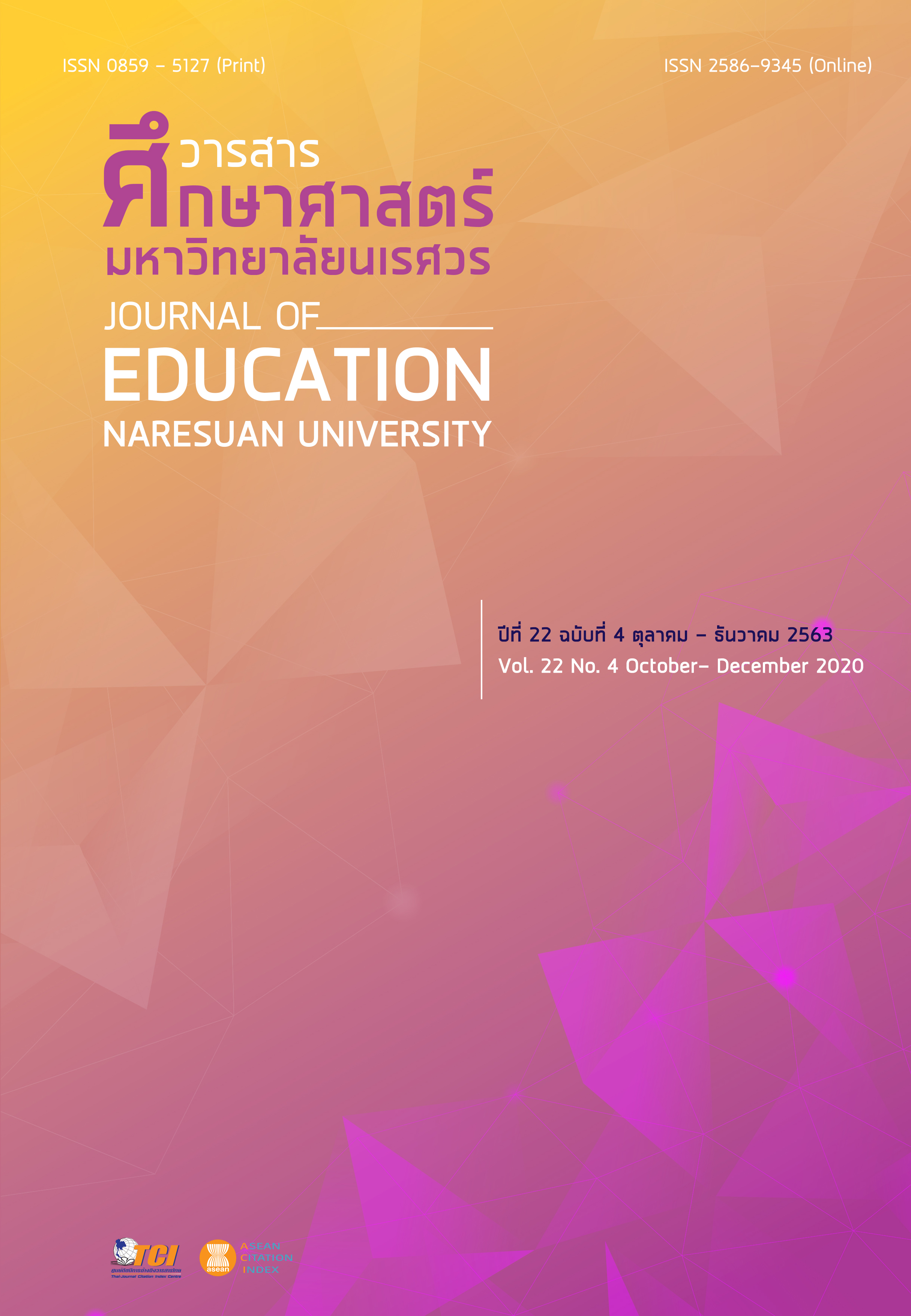SATISFACTION OF ASSISTIVE TECHNOLOGY ON LIFE QUALITY DEVELOPMENT FOR PEOPLE WITH DISABILITIES FROM SPECIAL EDUCATION CENTER REGION 8 ความพึงพอใจของผู้รับบริการเทคโนโลยีสิ่งอำนวยความสะดวกในการพัฒนาคุณภาพชีวิตคนพิการ ของศูนย์การศึกษาพิเศษ เขตการศึกษา 8
Main Article Content
Abstract
The purposes of this research were to study: the satisfaction of clients on assistive technology for life quality development, the suitability of facilities, the benefits and the barriers of the Special Educational Center, Region 8. The target group included: 57 persons with physical disabilities, 2 persons with impaired hearing, 11 persons with visual impairment, 70 parents or caregivers of disabled persons, and 42 staff of the Center, all selected through purposive sampling. Data were collected by questionnaires, and percentages, means, and standard deviations were calculated for statistical analysis. The results showed that the satisfaction with service accessed by the target group, in terms of technology facilities, positively affected the life quality of disabled persons at a high level. This was due to the process, policy and clear time management adapted or adopted for the special needs of individuals. This enabled them to participate in social activities, improved their potential, reduced the limiting factors, improved them physically, and increased their chances for successful life. Technology facilities benefited the development of following their use by parents, caretakers and staff. This included development their own potential to be good learners of various skills, reduction of factors limiting a better life, and reduction of dependency on others. Disabled persons improved their mental health, were more cheerful, and increased social interaction with others around them happily. Moreover, they had the opportunity to participate in social activities and be the part of social life. Overall, barriers were high in terms of knowledge of media technology facilities, which were adapted or adopted to meet the special needs of individuals with disabilities. In addition, they should be offered samples of media and demonstrations. Technologies are provided to applicants for trial use. There were some problems concerning the service mindedness of staff. Overall, barriers were at a moderate level. The staff of the special educational center lack sufficient knowledge about the use of specialized equipment and how to transfer information to the persons responsible for collecting data continuously. They also lack skills in coordination or collaboration with related agencies. The staff are responsible for too many tasks, budget is limited, and there are critical roles in many organizations. The appropriateness and quality of technology facilities that affect the life quality development of disabled persons, parents and caregivers face considerable problems at a high level. Staff are not as knowledgeable enough nor well-advised about how to adapt or adopt technology and facilities to meet the special needs to each disabled person. Technology facilities are insufficient to fully assist disabled persons; moreover, there are problems with equipment maintenance. The service evaluated by the staff is at a moderate level.
Article Details
The owner of the article does not copy or violate any of its copyright. If any copyright infringement occurs or prosecution, in any case, the Editorial Board is not involved in all the rights to the owner of the article to be performed.
References
Cheursuwantavee, T. (2008). Prospective on disability through concept and theory. Bangkok: Thana Press. [in Thai]
Kaewjinda, K., & Chatruprachewin, C. (2017). Development of the student care system for disabled in the inclusive schools of basic education. Journal of Education Naresuan University, 19(3), 118 – 132. [in Thai]
Kitthikhun, P. (2008). Cross the limit with mind over. Bangkok: Ki-lane Printing. [in Thai]
Mapong, S. (2008). Access to rehabilitation service of the disabled capability after the disabled registration in particular the comprehensive disability registration at Saraburi Hospital (Master thesis). Bangkok: Thammasat University. [in Thai]
Maslow, A. (1970). Motivation and personality (2nd ed.). New York: Harper & Row.
Ministry of Social Development and Human Security. (2009). Act of promotion and improvement the life quality of the disabled 2007 (2nd ed.). Bangkok: Deesuwon Supply Service. [in Thai]
Niyomadul, T. (2010). Facilities needs of disabled persons to access social services: A case study of Kathu District Phuket Province (Master thesis). Bangkok: Thammasat University. [in Thai]
Pongpeaw, J. (n.d.). Law for disabilities, council of disable people of Thailand. Bangkok: C.P.Y Supply. [in Thai]
Pooprasert, O., & Mupattararoj, T. (2017). Assistive technology: Writing tool “Thai word search program” for students with learning disabilities in Thailand. Journal of Education Naresuan University, 19(3), 370 – 383. [in Thai]
Ruangrittisak, N. (n.d.). IL (Independent Living). Retrieved August 15, 2017, from https://www.dcy.go.th/ [in Thai]
Scherer, M. J. (1996). Outcomes of assistive technology use on quality of life. Disability and Rehabilitation, 18(9), 439-448.
Singpundon, J., Attathammarat, R., & Waansej, S. (2009). State and problems receive of assistive technology for students with learning disability the Office of Khon Kaen Educational Service Area 1-5. Journal of Education Khon Kaen University, 32(2), 22-30. [in Thai]
Sirisomboonlarp, J. (2014). The guidelines of assistive technology for people with disabilities in Thailand to step into ASEAN. Bangkok: Ministry of Education, Department of Empowerment of Persons with Disabilities. [in Thai]
Turner, J. (1974). Development and administration: Operational implications for social welfare. New York: United States Committee, International Council on Social Welfare.


